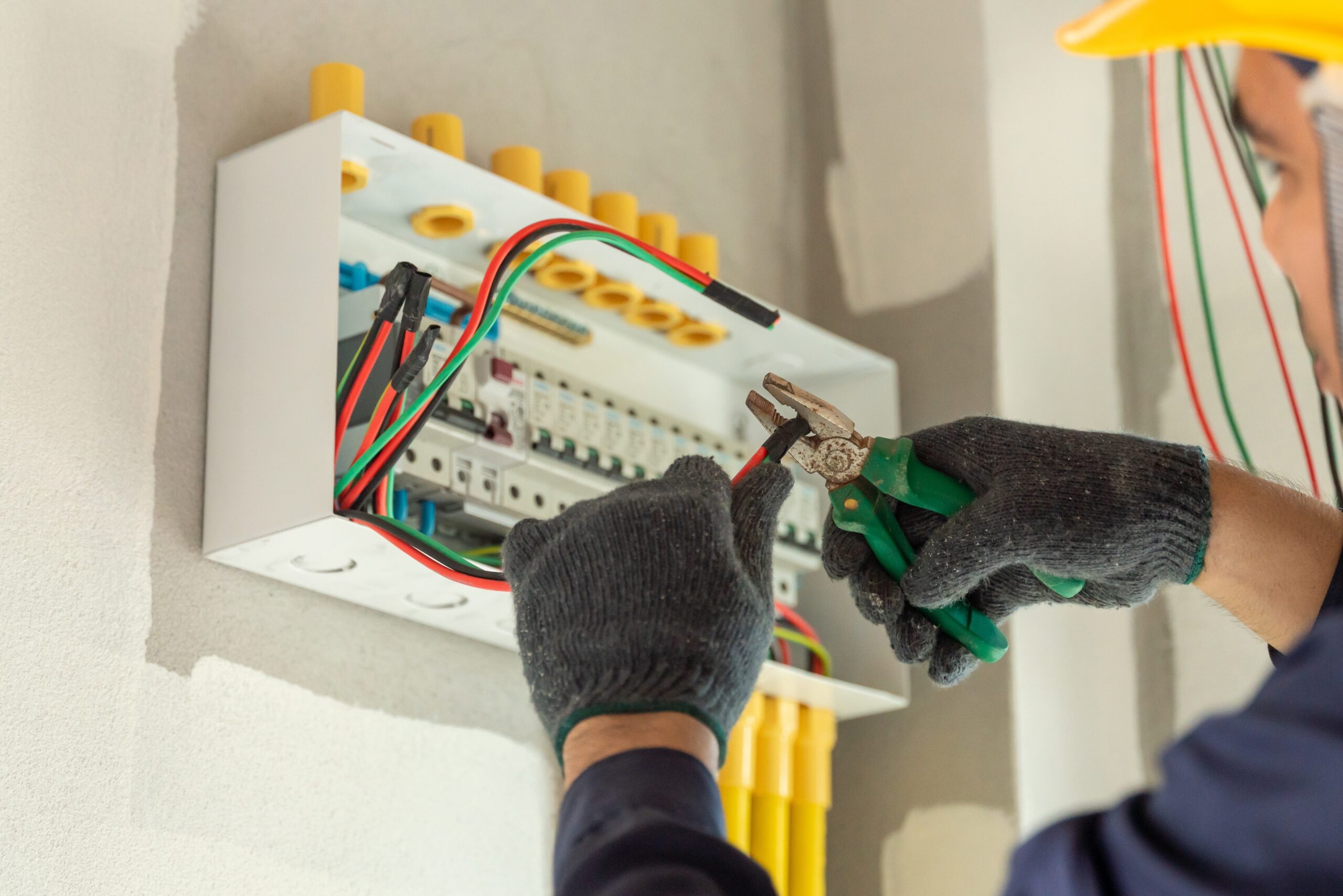In recent years, many Americans have faced the daunting prospect of losing their homes. Various factors contribute to this unsettling trend, and understanding them is the first step toward prevention. Whether it’s economic shifts, personal financial mismanagement, or external factors beyond one’s control, being informed can help you take precautionary measures to safeguard your home and financial well-being. In this listicle, we’ll explore fifteen reasons why Americans are losing their homes and how you can protect yourself from such adversity.
1. Job Losses Spell Trouble for Homeowners

Losing a job is a significant stressor that can jeopardize homeownership. Without a steady income, paying the mortgage becomes a daunting challenge for many families. According to the Bureau of Labor Statistics, job losses have been a persistent issue, affecting millions of Americans annually. The sudden loss of income can lead to missed payments and, eventually, foreclosure if not addressed promptly.
To mitigate this risk, consider diversifying your income sources. Side gigs or freelancing can provide additional financial stability in case of job loss. It’s equally important to maintain up-to-date skills and consider further education or training to enhance your employability. Keeping a robust professional network can also help you find new opportunities faster, reducing the time you spend without a paycheck.
2. Economic Downturns Can Pull the Rug Out from Under

Economic downturns are like unpredictable storms that can cause widespread financial instability. During recessions, job losses increase, and income levels drop, making it difficult for people to keep up with their mortgage payments. According to NYU School of Law, many Americans faced foreclosure as a direct result of the 2008 financial crisis. The ripple effects of such economic crises can linger for years, affecting housing markets and personal finances long after the initial shock.
To protect yourself, aim to build an emergency fund covering at least three to six months of essential expenses. Having a financial cushion can help you navigate hard times without missing mortgage payments. It’s also wise to stay informed about economic trends and potential impacts on your job sector. This foresight can help you make proactive adjustments to your financial strategy, ensuring you’re prepared for any downturns that may come your way.
3. Medical Bills Are Costly and Can Lead to Foreclosure

Medical expenses can be a massive burden, leading many Americans to financial ruin. Even with insurance, out-of-pocket costs for surgeries, treatments, and medications can quickly escalate. In fact, Cornell ILR School highlights that medical debt is a leading cause of bankruptcy in the United States. When faced with overwhelming medical bills, some homeowners find themselves unable to maintain mortgage payments, leading to potential foreclosure.
To protect yourself, consider investing in comprehensive health insurance and exploring supplemental plans that cover gaps. It’s also beneficial to build a health savings account (HSA) if you’re eligible, which provides tax advantages for medical expenses. Additionally, discussing payment plans or financial aid with healthcare providers can alleviate some of the immediate financial stress. By taking these steps, you can reduce the risk of medical debt impacting your ability to keep your home.
4. Rising Interest Rates Can Increase Monthly Payments

Interest rates have a direct impact on mortgage affordability, and rising rates can turn a manageable payment into a financial burden. When interest rates increase, those with adjustable-rate mortgages (ARMs) may see their monthly mortgage payments rise significantly. This unexpected hike can strain budgets, forcing some homeowners into default if they’re unable to adjust their finances accordingly. Understanding how interest rate changes affect your mortgage is crucial to maintaining financial stability.
To protect yourself, consider locking in a fixed-rate mortgage if you’re planning to stay in your home long-term. This move can shield you from future rate increases, providing predictable monthly payments. Alternatively, if you’re already in an ARM, keep a close eye on market trends and consider refinancing when rates are favorable. Regularly reviewing your mortgage terms and options can help you make informed decisions and avoid surprises down the line.
5. Natural Disasters Can Destroy Homes and Finances

Natural disasters like hurricanes, wildfires, and floods can have devastating effects on homes and finances. In their aftermath, recovery costs can be overwhelming, and insurance may not cover everything. For those without sufficient coverage, rebuilding and repairing can lead to enormous debt or even foreclosure. As climate change contributes to the frequency and severity of these events, being prepared is more crucial than ever.
To safeguard your home, ensure you have comprehensive homeowners insurance that covers natural disasters specific to your area. Consider supplementing this with flood or earthquake insurance if applicable. Additionally, creating a disaster preparedness plan can help you act quickly to minimize damage. By taking these proactive steps, you can better protect your home and financial health against the unpredictable wrath of nature.
6. Divorce Can Lead to Financial Fragmentation

Divorce is not only emotionally taxing but can also wreak havoc on finances, particularly concerning homeownership. When a couple parts ways, the division of assets often leads to one partner taking on the mortgage alone, which can be financially burdensome. In many cases, the home may need to be sold to distribute assets equitably, potentially leading to foreclosure if the sale isn’t timely or profitable. This financial fragmentation can leave both parties struggling to establish stability post-divorce.
To protect yourself in such situations, consider seeking a divorce attorney experienced in real estate matters. They can help negotiate a fair settlement that considers the home’s equity and mortgage responsibilities. It’s also wise to consult with a financial planner to understand the long-term implications of dividing assets. Open communication and strategic planning during the divorce process can mitigate the financial strain and help both parties move forward successfully.
7. Predatory Lending Practices Can Trap Borrowers

Predatory lending practices involve unfair, deceptive, or fraudulent loan terms that can trap borrowers in unfavorable financial situations. These practices often target vulnerable individuals, offering mortgages with hidden fees, exorbitant interest rates, or misleading terms. As borrowers struggle to meet these unfair conditions, they risk defaulting and losing their homes. Such practices were notably rampant during the lead-up to the 2008 housing crisis, highlighting the need for vigilance.
To protect yourself, it’s crucial to read all loan documents thoroughly and understand the terms before signing anything. Seek advice from a reputable financial advisor or housing counselor if you’re uncertain. Research lenders and choose those with a strong reputation for ethical practices. By being informed and cautious, you can avoid falling victim to predatory lending and protect your home.
8. Personal Financial Mismanagement Can Lead to Crisis

Failing to manage personal finances effectively is a common reason why many people face foreclosure. Overspending, inadequate budgeting, and accumulating high-interest debt can create a financial crisis, making it challenging to keep up with mortgage payments. Without proper financial planning, these issues can spiral out of control, leading to missed payments and eventual foreclosure. The stress of financial mismanagement can further exacerbate the situation, leaving homeowners feeling overwhelmed.
To prevent this, it’s essential to create a realistic budget that prioritizes mortgage payments and living expenses. Regularly reviewing your financial situation and adjusting your budget as needed can help maintain financial stability. Additionally, seeking guidance from a financial counselor can provide valuable insights into managing debt and improving financial habits. By taking control of your finances, you can reduce the risk of losing your home due to mismanagement.
9. Unexpected Major Expenses Can Derail Budgets

Life is full of surprises, and sometimes, these surprises come in the form of major, unexpected expenses. Whether it’s a sudden car breakdown, home repair, or medical emergency, these unforeseen costs can derail even the most carefully planned budgets. Without a financial buffer, handling these expenses often means diverting funds from mortgage payments, leading to potential foreclosure. The stress and anxiety of managing such financial shocks can have long-lasting effects on a household’s stability.
To safeguard against this, building and maintaining an emergency fund is crucial. This fund should cover at least three to six months of living expenses, providing a cushion during unexpected financial hits. Regularly contributing to this fund, even if it’s a small amount, can build security over time. By preparing for the unexpected, you can ensure that surprise expenses don’t jeopardize your ability to maintain your home.
10. Increased Property Taxes Can Strain Budgets

Property taxes are a necessary part of homeownership, but when they increase unexpectedly, they can strain a family’s budget. Rising property values, while beneficial in theory, often lead to higher taxes that homeowners must accommodate. For some, especially those on fixed incomes, these increases can make it challenging to meet all financial obligations. Failure to pay property taxes can lead to liens on the property and eventually foreclosure.
To manage this risk, stay informed about property tax assessments and appeal them if they seem incorrect. Consider setting aside funds specifically for property taxes to avoid scrambling when payments are due. It may also be beneficial to explore any available tax relief programs in your area, especially for seniors or low-income households. Proactive management of property taxes can prevent them from becoming a financial burden.
11. Lack of Equity Can Limit Options During Financial Hardship

Home equity is a valuable financial asset, but without it, homeowners may find themselves with limited options during tough times. When facing financial hardship, homeowners with little or no equity cannot tap into their home’s value to alleviate financial pressures. This limitation can lead to missed mortgage payments and increased risk of foreclosure. Additionally, selling a home without equity can result in financial losses and difficulty in finding alternative housing.
To protect against this, focus on building equity through regular mortgage payments and home improvements that increase property value. Avoid using home equity loans extensively, as they can deplete this valuable resource. Regularly monitoring your home’s market value can also provide insights into your equity status, helping you make informed decisions. By maintaining and growing your equity, you increase your financial flexibility in times of need.
12. Oversized Mortgages Can Lead to Financial Strain

Taking on a mortgage larger than what one can comfortably afford is a common trap that leads to financial difficulty. Homebuyers often overestimate their ability to manage large monthly payments, especially if their financial situation changes unexpectedly. When income doesn’t match the mortgage obligations, missed payments and potential foreclosure become real threats. This situation can create a cycle of stress and financial instability, impacting other areas of life as well.
To avoid this, ensure that your mortgage aligns with your current financial reality. Consider using the 28/36 rule, which advises that no more than 28% of your gross monthly income should go toward housing costs, and total debts should not exceed 36%. Being realistic about your budget and financial commitments can prevent overstretching. By choosing a mortgage that’s sustainable long-term, you safeguard your home and financial health.
13. Insufficient Insurance Coverage Can Lead to Major Setbacks

Insurance is a crucial part of protecting your home, but insufficient coverage can leave homeowners vulnerable to significant financial setbacks. Unexpected events like fires, floods, or theft can result in substantial losses if not adequately covered by insurance. Without thorough policies, homeowners may face steep out-of-pocket expenses or even lose their homes due to inability to repair or replace what was lost.
To prevent such scenarios, regularly review your insurance policies to ensure they provide comprehensive coverage. Consider factors such as natural disaster risks in your area and adjust your policy accordingly. It’s also wise to document and appraise valuable possessions to ensure they’re covered under your policy. By securing adequate insurance, you can protect your home and financial well-being against unforeseen events.
14. Legal Issues Can Lead to Unexpected Financial Liabilities

Legal issues, whether personal or professional, can create unexpected financial liabilities that impact one’s ability to maintain homeownership. Lawsuits, legal settlements, or compliance fines can result in substantial financial obligations that strain personal finances. When these liabilities occur, they can divert funds from essential expenses like mortgage payments, increasing the risk of foreclosure.
To guard against this, seek legal advice before entering agreements or making significant decisions that could have legal ramifications. Consider having liability insurance to cover potential legal costs or settlements. Being proactive in understanding and mitigating legal risks can help you avoid financial pitfalls. By staying informed and prepared, you can protect your home from being impacted by unexpected legal challenges.
15. Ignoring Maintenance Can Lead to Costly Repairs

Home maintenance is often overlooked but plays a crucial role in protecting the home’s value and avoiding costly repairs. Neglecting routine maintenance can lead to minor issues escalating into major problems, such as roof leaks or plumbing failures. When these large-scale repairs become necessary, the financial burden can be overwhelming, leading some homeowners to divert mortgage payments to cover costs.
To prevent this, establish a regular maintenance schedule to keep your home in good condition. Address issues promptly to avoid more significant problems later. It’s also helpful to set aside a budget for home maintenance to cover recurring costs and unexpected repairs. By maintaining your home, you preserve its value and avoid financial stress, ensuring it remains a secure and comfortable environment for your family.
This article is for informational purposes only and should not be construed as financial advice. Consult a financial professional before making investment or other financial decisions. The author and publisher make no warranties of any kind.








